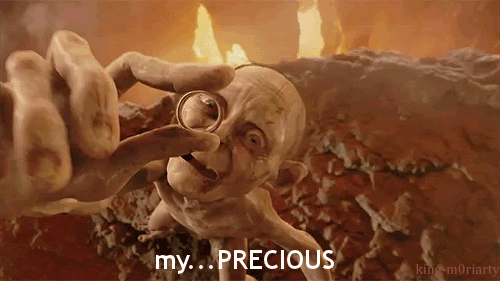What do you think?
Rate this book
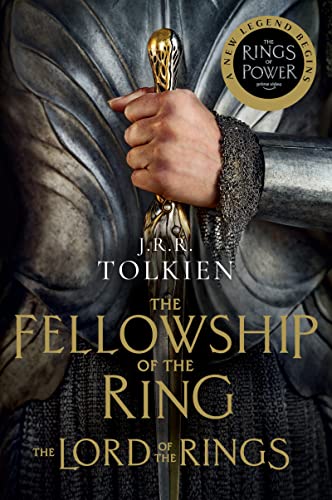

432 pages, Kindle Edition
First published July 29, 1954
All that is gold does not glitter,I was like what the fuck, man?! Where did that come from? It makes absolutely no sense in the context of the scene. Oh, sure, it's an inside thing on how Aragorn was the secret king, but nobody knew that! Everyone, elf, hobbit, dwarf, (and me) would have thought he was completely high on some elven grass.
Not all those who wander are lost;
The old that is strong does not wither,
Deep roots are not reached by the frost.
From the ashes a fire shall be woken,
A light from the shadows shall spring;
Renewed shall be blade that was broken,
The crownless again shall be king







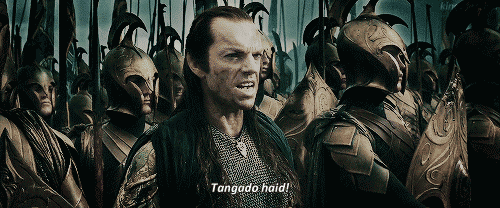



“All that is gold does not glitter,
Not all those who wander are lost;
The old that is strong does not wither,
Deep roots are not reached by the frost.
From the ashes a fire shall be woken,
A light from the shadows shall spring;
Renewed shall be blade that was broken,
The crownless again shall be king.”


“Deserves it! I daresay he does. Many that live deserve death. And some that die deserve life. Can you give it to them? Then do not be too eager to deal out death in judgement. For even the very wise cannot see all ends.”
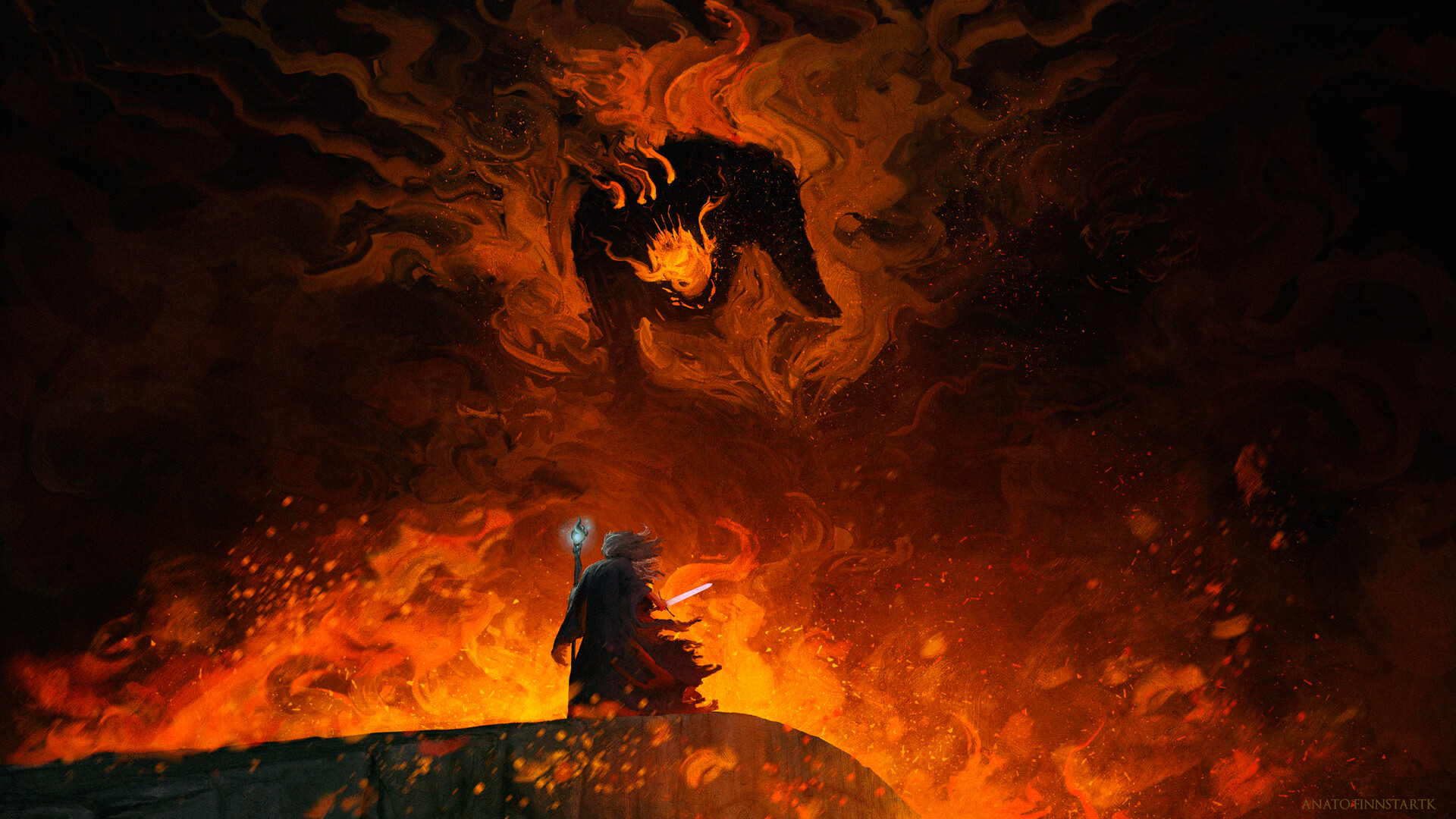
“I wish it need not have happened in my time," said Frodo.
"So do I," said Gandalf, "and so do all who live to see such times. But that is not for them to decide. All we have to decide is what to do with the time that is given us.”
“The world is indeed full of peril, and in it there are many dark places; but still there is much that is fair, and though in all lands love is now mingled with grief, it grows perhaps the greater.”
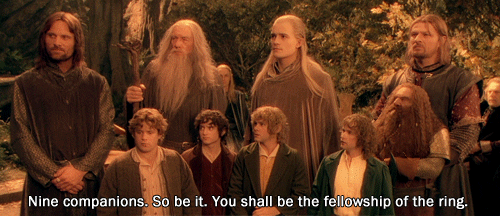






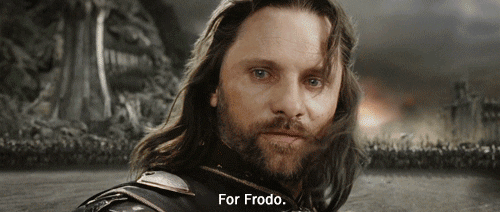
Don't adventures ever have an end? I suppose not. Someone else always has to carry on on the story.
Many that live deserve death. And some that die deserve life. Can you give it to them? Then do not be too eager to deal out death in judgment. For even the very wise cannot see all ends.
Away high in the East swung Remmirath, the Netted Stars, and slowly above the mists red Borgil rose, glowing like a jewel of fire. Then by some shift of airs all the mist was drawn away like a veil, and there leaned up, as he climbed over the rim of the world, the Swordsman of the Sky, Menelvagor with his shining belt. The Elves burst into song. Suddenly, under teh trees a fire sprang with light. 'Come!' the Elves called to the hobbits. 'Come! Now is the time for speech and merriment!'...At the south end of the greensward there was an opening. There the greenfloor ran on into the wood, and formed a wide space like a hall, roofed by the boughs of trees. Their great trunks ran like pillars down each side. In the middle there was a wood-fire blazing, and upon the tree-pillars torches with lights of gold and silver were burning steadily. The Elves sat round the fire upon the grass or upon the sawn rings of old trunks. Some went to and fro bearing cups and pouring drink; others brought food on heaped plates and dishes.




“All that is gold does not glitter,
Not all those who wander are lost;
The old that is strong does not wither,
Deep roots are not reached by the frost.
From the ashes a fire shall be woken,
A light from the shadows shall spring;
Renewed shall be blade that was broken,
The crownless again shall be king.”


































Ai! laurië lantar lassi súrinen,'Ah! like gold fall the leaves in the wind, long years numberless as the wings of trees! The long years have passed like swift draughts of the sweet mead in lofty halls beyond the West, beneath the blue vaults of Varda wherein the stars tremble in the song of her voice, holy and queenly. Who now shall refill the cup for me? For now the Kindler, Varda, the Queen of the Stars, from Mount Everwhite has uplifted her hands like clouds, and all paths are drowned deep in shadow; and out of a grey country darkness lies on the foaming waves between us, and mist covers the jewels of Calacirya for ever. Now lost, lost to those from the East is Valimar! Farewell! Maybe thou shalt find Valimar. Maybe even thou shalt find it. Farewell!'
Yéni únótimë ve rámar aldaron!
Yéni ve lintë yuldar avánier
mi oromardi lissë-miruvóreva
Andúnë pella, Vardo tellumar
nu luini yassen tintilar i eleni
ómaryo airetári-lírinen.
Sí man i yulma nin enquantuva?
An sí Tintallë Varda Oiolossëo
ve fanyar máryat Elentári ortanë
ar ilyë tier undulávë lumbulë
ar sindanóriello caita mornië
i falmalinnar imbë met, ar hísië
untúpa Calaciryo míri oialë.
Sí vanwa ná, Rómello vanwa, Valimar!
Namárië! Nai hiruvalyë Valimar!
Nai elyë hiruva! Namárië!
